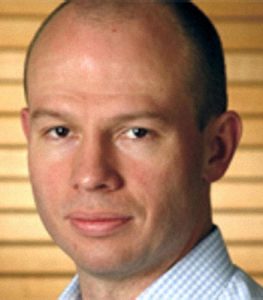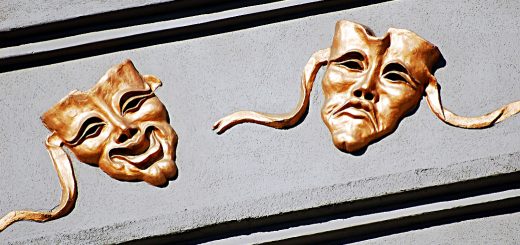Martin Taylor – The Tsar Has No Clothes

Today’s post is a profile of Guru investor Martin Taylor, who appears in Jack Schwager’s book Hedge Fund Market Wizards. His chapter is called The Tsar Has No Clothes.
Contents
Martin Taylor
Martin Taylor appears in Jack Schwager’s book Hedge Fund Market Wizards.
- His chapter is called The Tsar Has No Clothes.
Taylor is unusual in retiring his $7 bn hedge fund while it was close to it’s all-time highs and replacing it with a fund a quarter of the size.
I had to work from five in the morning until nine at night every day. I start the morning with the Asian lunchtime and work through until the U.S. close.
I ended up with a big team and lots of clients. I realized that if I continued the way I was going, I was eventually going to kill myself.
As well as being smaller, the new fund has a wider mandate, so Taylor can invest in what he wants.
- He is also able to report quarterly rather than monthly.
Performance
Taylor managed two funds:
- From 1995 to 2000, he ran a long-only Eastern European stock fund.
- Then from October 2000, he ran the Nevsky hedge fund, which gradually morphed into a global emerging markets fund.
From 1995 to 2011, Taylor had an annual compound return of more than 22%, compare to 10% pa for the relevant index.
He also had smaller drawdowns than the EM long only and EM hedge fund indices, doing particularly well in the 1998 and 2000-2002 bear markets.
- In 2008 his loss was 40% of the hedge fund index and one-third of the long-only index.
Early career
Taylor is English, and graduated in history in 1990, becoming an accountant for PWC.
By pure chance, I was assigned to a group that audited investment banks, stockbrokers, and asset managers.
What both fascinated and appalled me was here were all these people just out of university, making hundreds of thousands of pounds, while I’m making £12,000, and I thought 99 percent of them were just plain stupid.
If you interview a trader for an audit, they hit you with lots of alphas, deltas, gammas, blah, blah, blah, in the hope you’ll run away in 10 minutes. I would make them take me through it. By doing that, I became fascinated by how markets work.
At the time, I was saving money to put down as a deposit on a house. It seems bizarre now, but I used that money to start trading options on the FTSE.
Taylor mentions that Schwager’s own books were very influential on him at this stage.
He avoided stocks because he job meant that trading stocks involved going through the compliance department.
It sounds so unbelievably naive now, but basically I did it on how overbought or oversold I thought the market was and what I thought the market direction should be based on my broad feelings on global macro. But, of course, although I didn’t realize it then, what I knew about global macro at the time was pathetic.
My thinking was something like, The market has been down six days in a row . There was some bad economic news, but I think that should be in the price now. I’ll buy some.
Over six months, he turned £2K into £10K – and then back into £2K over five days.
Barings
I had always planned to resign once I qualified as an accountant, and I was very lucky to get a job as an analyst for Baring Asset Management.
About six months after joining the firm, I was running a chunk of the portfolio. Several months later, the head of the whole global emerging markets department resigned, and [Taylor’s boss’s boss] was promoted.
So 10 months after I had started with Barings, I had become the main day-to-day portfolio manager for the Eastern European fund.
Low beta
The next section of the interview covers the Russian crisis of 1998.
- I didn’t get very much out of this, other than a discussion on low beta.
Buying low-beta stocks is a common mistake investors make. Why would you ever want to own boring stocks?
If the market goes down 40 percent for macro reasons, they’ll go down 20 percent. Wouldn’t you just rather own cash? And if the market goes up 50 percent, the boring stocks will go up only 10 percent.
You have negatively asymmetric returns. It is what I call a pigeon-and-elephant trade – you eat like a pigeon and shit like an elephant.
“f you have a portfolio of boring stocks and want to make it produce equity-like returns, you have to leverage it up. If the portfolio then goes wrong, the loss is going to be massively asymmetric because of the leverage.
I understand why Taylor would say this as a hedge fund guy, but it’s not really true for the average investor.
- Up less and down less than the market are not really asymmetric returns.
- Using cash instead of low beta means timing the market, and lots of people don’t think they can do that.
- For a long-only investor, low beta (low vol) has been shown to be an outperformance factor.
Macro vs stocks
If you get 50 macro experts in a room, you will get 55 opinions. You can get much more knowledge and predictability about a company.
We talk or meet with every company we own every few months. Over a period of years, you can build up a relatively good understanding of what the company does and their ability to execute new business plans.
The type of trade in which you can get the confidence to take a big position and stay with it for years is therefore more likely to be company driven rather than macro driven.
There are three things I like to see when I buy a stock: a favorable macro situation, a secular trend, and good company management.
Moving to long / short
Taylor left Barings because the fund became too big and he wasn’t being paid enough.
- He was also frustrated at not being able to short stocks.
He joined Thames River, a company that provided the infrastructure for him to run his own hedge fund.
- But he was only able to raise $20M for the fund.
If someone comes to you and says they only invest in risky assets, but guarantee you limited downside volatility, they are either extraordinary geniuses- and there are probably only two of them on the planet – or they are liars.
If you are investing in assets with an annualized volatility of 20 percent to 40 percent, you’re inevitably going to take two or three decent hits to your NAV each year.
Every year that the Nevsky fund has been running, we have had at least two intra-month losses of between 6% and 12%.
Net exposure
Taylor’s exposure range is 20% to 11% long.
If you are completely out of the market when it reverses, then you will never get back in again.
When the market is so bad that you think it is obvious that you should be net short, that’s typically the time when it is all in the price and you should be buying.
Being in a position of running people’s money, I can’t take extreme positions and maintain my mental equilibrium.
When the market goes up, I try is capture 70 to 80% of the move, and when the market goes down, I try to lose only 30 or 40% of it.
Long-only funds
Managing long-only money is really easy because if you are up more than the index, everyone loves you, since a huge majority of the managers underperform the index. And even when you lose, as long as you are losing less in relative terms, people still love you.
Whereas if you are a hedge fund manager, when the market is up, investors want you to perform like the market or better, and when the market is down, they want you to perform like cash.
There are several reasons why emerging market long-only funds have persisted despite their appalling performance. One key reason is marketing. The world of investment advisers is heavily influenced by media image so they suck their clients into this stuff.
[Investors] are not looking at relative performance. Emerging markets have gone up a lot over time. They are just looking at the fact that their investment is up.
Even index funds in emerging markets underperform the index because of high fees. Why would you buy a guaranteed loser? Marketing guys hold out the hope that maybe you will pick one of the funds that outperform the index.
Good companies
We forecast the earnings of every company we follow for three or four years out. I like to invest in companies that are cheap relative to their sector, but where we are forecasting earnings above consensus for the next few years. The catalyst I monitor for a stock to realize value is earnings surprise.
Shorts
I would like to go short companies that are expensive relative to their sector and where I expect profit warnings over the next few years. The problem is that these bad companies have the greatest risk of being takeover targets.
The emerging markets are full of sectors where multinationals want exposure, and the only companies they can generally take over are bad companies.
Half to three-quarters of our shorts are stock index futures. So most of our net exposure adjustment is done through shorting markets rather than individual companies.
We only short bad companies that can’t be taken over because they are owned by the government or their own pension fund. In emerging markets, about one-third of all companies are government or pension fund owned.
Risk control
We are always in the most liquid securities. If we get it wrong, we get out immediately.
We have never had and would never use any form of quantitative risk control because all quantitative risk control models use historical volatility. It is like driving by looking in the rearview mirror.
We also never use stops.
Technical analysis
Charts are very important, but the core is always fundamental.
Once I have done the fundamental work and decided to buy a stock, I will first look at the chart before putting on a position.
If the stock is very overbought, it won’t stop me from buying, but I will start with a small position because there is a larger chance of a correction.
If I am bullish on a stock but don’t have a full position, and then the stock breaks out on the chart, I will then go to a full position because the breakout confirms that the market is now seeing the same thing I am seeing.
If a stock is extremely oversold – say, the RSI is at a three-year low –
whatever is killing it is probably already in the price. A stock being extremely oversold is usually an acute phenomenon that lasts for only a few weeks.
Conclusions
This is an good interview, with a lot of interesting comment from a very open interviewee.
- There’s not much on how to start your own hedge fund, but quite a lot about stock selection and emerging markets.
Taylor’s use of macro (to set overall exposure and to choose the most promising countries) is also interesting.
- And his comments on long-only funds are illuminating.
I’m less convinced by his comments on low-beta stocks (though they make sense for him, as a hedge-fund boss).
Until next time.


















